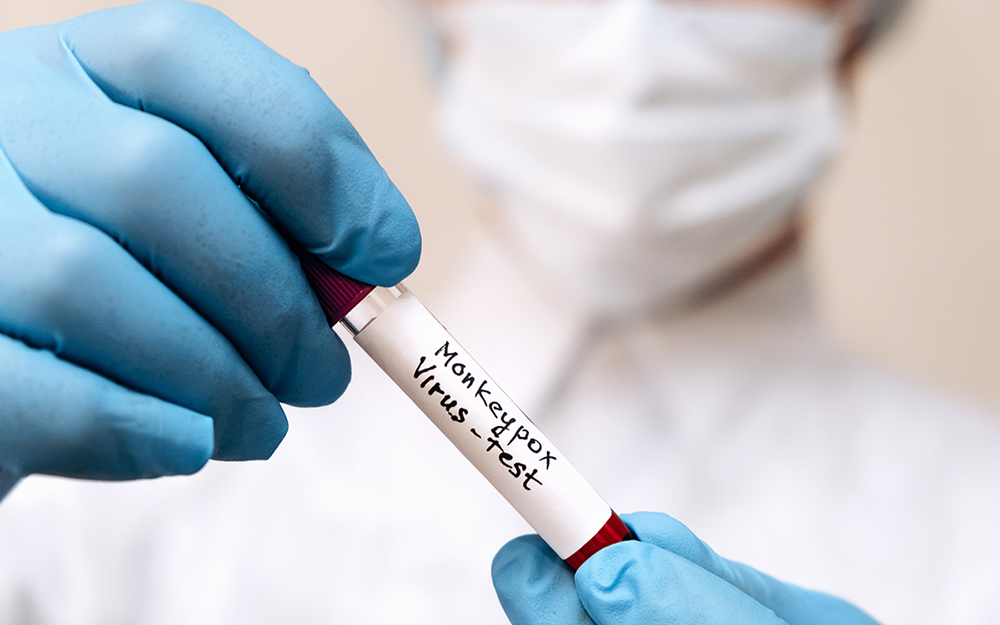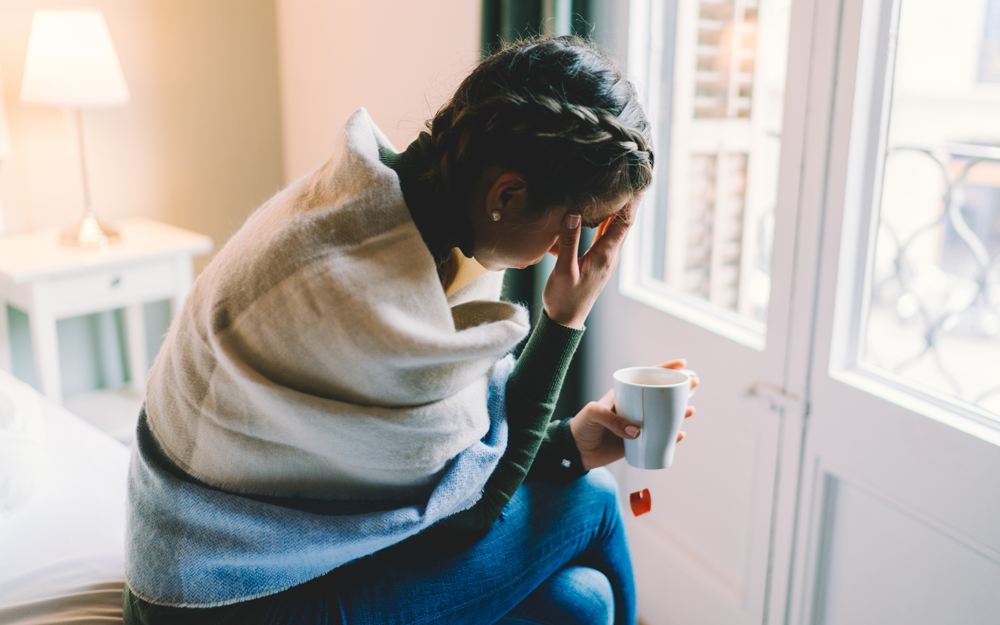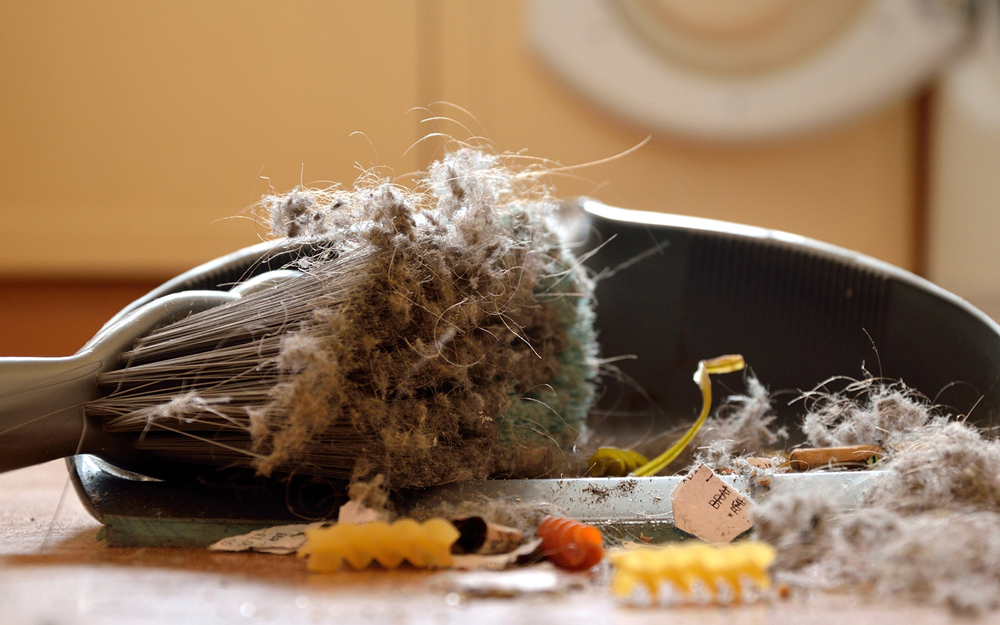What You Should Know About Mpox (Monkeypox)
Date
August 2, 2022
Credits

Date
August 2, 2022
Credits
Medical providers featured in this article

In Brief
{{cta-block}}
With the World Health Organization, California and Los Angeles all declaring mpox (monkeypox) a health crisis, you may be feeling concerned about this rare disease, especially as case numbers tick upward in the U.S. and beyond.
Unlike the coronavirus that causes COVID-19, mpox is a known virus that has been studied for decades. Scientists know how this disease behaves and how you can protect yourself.
Mpox, previously known as monkeypox because it was first seen in research monkeys, is not nearly as contagious as the virus that causes COVID-19, doesn't spread easily between humans and is seldom fatal.
That said, the disease can be very painful, and researchers also are noting some unusual trends in the current outbreak.
Here's what you should know about mpox, including who's at risk, how to avoid catching it, and what to do if you think you or someone you love might be infected. We've also assembled a list of trusted public health resources to connect you with the most up-to-date information on mpox.
What’s mpox?
Part of the same family of viruses as smallpox, mpox is typically found in parts of West and Central Africa. Until recently, almost all other cases were linked to travel to the African continent, where rodents—not monkeys—are thought to carry the virus and sometimes infect humans.
The current outbreak is different. In North America and elsewhere, doctors are seeing cases that are not linked to travel.
Unlike smallpox, mpox is rarely fatal, and most cases will clear up on their own without treatment in a few weeks. The telltale rash can cause distress, however, so it's important to know how the illness spreads and to protect yourself and others.
How does it spread?
People with mpox are only contagious when they have symptoms, which makes mpox a lot easier to avoid than COVID-19.
Also in contrast to the coronavirus, it's not easy to catch mpox just by breathing. It will only spread through the air if you have prolonged contact, like cuddling or talking closely, with somebody who is infected.
Mpox is most easily transmitted when bodily fluids are exchanged, such through kissing or having sex with someone who's infected or by touching their rash or scabs. Touching things that have traces of their fluid—clothes, towels or sheets—could also get you sick.
To date, most mpox patients in L.A. County self-identify as men who have sex with men. The disease may be spreading locally through sexual contact, but anyone who's been in close contact with someone who has mpox is at risk.
What happens if I get infected?
Most people will notice flu-like symptoms (such as fever and muscle aches) and may get headaches and swollen lymph nodes.
Next comes the disease's characteristic rash, which appears within about three days and often shows up on the face or genitals before spreading. A rash is always present in mpox, even when other symptoms vary.
There's almost never a reason to go to the ER for mpox. If you think you may have it, get in touch with your primary care provider, call a Cedars-Sinai urgent care location or make an appointment at one of L.A County's Sexual Health Clinics (PDF).
Before you head in to see any clinical care provider, call ahead so the staff can prepare. Make sure you cover any rash areas with clothing and wear a mask.
To determine if you have mpox, you might be asked to take a test, which will be sent to a lab. If you test positive, your provider will talk to you about options, which may include investigational treatments.
Because they're currently in limited supply, aren't standardized and don't make sense for every case, these medications won't be offered to all patients, but your provider will be able to recommend the best course of action to support you based on the most up-to-date guidelines. Remember that most people with mpox usually recover without the need for any investigational treatments.
Hospitalization has been rare in the current outbreak, and no deaths have been reported from mpox in the U.S. But since the mpox rash can be painful and can cause permanent scarring, follow the latest guidelines to protect yourself.
Newsroom: KTLA 5: LA County Confirms 1st Presumptive Case of Monkeypox
How can I protect myself?
The good news is that there's a lot you can do to avoid catching mpox —and it's very similar to what you've been doing to protect yourself from COVID-19.
As noted in this KTLA interview with Dr. Jonathan Grein, director of Hospital Epidemiology at Cedars-Sinai, basic prevention guidelines work: Avoid close contact with anyone who has symptoms and make sure you wash your hands often.
If you live with someone who's got mpox, follow advice on home hygiene to prevent transmission. L.A. County also offers guidelines on how to isolate at home.
Public health agencies are offering up-to-date details about mpox (see links below), and the Human Rights Campaign also has a dedicated site that includes a guide to prevention and other resources.
If you're sexually active, the Centers for Disease Control and Prevention has a brief video with clear advice on steps you can take to reduce your risk.
{{providers}}
Can kids get mpox?
While children can get mpox, it's less common. If you think your child has been exposed, get in touch with their doctor and ask about options and next steps. If they have symptoms, make sure you keep their rash covered and prevent them from scratching or touching their eyes, as that could make the illness worse.
Newsroom: How Cedars-Sinai Prepared for Pandemic Patients
Are there treatments and vaccines?
Vaccines for mpox are currently managed by L.A County, which works with federal health agencies to access doses and determine who's eligible. There is no vaccine specifically for mpox, but the JYNNEOS shot for smallpox may be effective since the viruses are related.
At this time, L.A. County is in the process of getting more doses of the vaccine so they can get the shot to more people who may be at heightened risk of getting sick. Not everyone is eligible for the vaccine, and supplies are limited, but the shot is available for those who meet these criteria.
In some cases, providers can obtain single-patient emergency use authorization from the FDA, and the CDC is also working to further expand access for pediatric patients.
You also may have heard about a treatment called tecovirimat. This antiviral drug—which is approved only for smallpox—is considered investigational for mpox. That means there is reason to believe it may work in some cases, but there is no proof that it does.
Investigational drugs can be considered for severe cases of mpox or for people at high risk for severe illness, but those situations are less common, and most people with mpox will recover without the need for investigational treatments.
That said, tecovirimat is available in L.A. County, and providers are prescribing it only to patients who are eligible. Members of the public can't request this treatment or obtain it on their own at a pharmacy, hospital emergency department or clinic.
That doesn't mean there's nothing you can do if you have milder symptoms, like irritation due to the rash. Your provider can offer treatments that are not specific to mpox but that may help, like prescription mouth rinses, stool softeners for those with rectal pain, or topical gels or creams.
Resources
You can stay up to date on mpox and learn more about the virus, the current outbreak, vaccination, treatments and more from any of these trusted healthcare resources.
- World Health Organization (WHO)
- Centers for Disease Control and Prevention (CDC)
- CDC Travel Notice
- L.A. County Department of Public Health (LACDPH)
- L.A County Department of Public Health: Weekly Data Snapshot
- L.A County Department of Public Health (Pets) (PDF)
- L. A. County Department of Public Health (Questions and Resources)
- California Department of Public Health (Prevention)
- California Department of Public Health (Vaccines)
- California Department of Public Health (FAQs)
- California Department of Public Health (Updated case numbers with demographic details)





